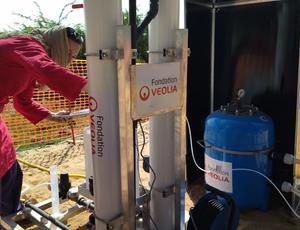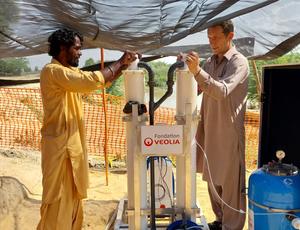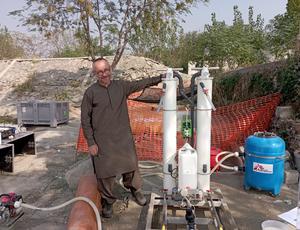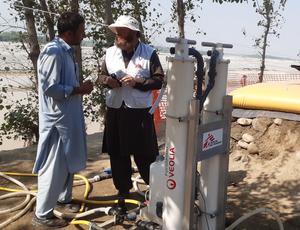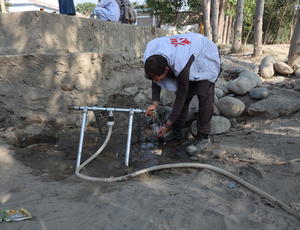Extreme weather events are on the rise and Pakistan paid a heavy price again in 2022. The heavy rainfall that hit the country led to catastrophic floods that killed at least 1,700 people. Faced with this situation, Médecins Sans Frontières asked for the support of Veoliaforce volunteers from the Veolia Foundation, who went to the field to provide access to drinking water.
Melting glaciers, a deregulated monsoon with increased rainfall... The floods began in Pakistan in June 2022 and by the beginning of September, almost 10% of the country was under water. Nearly one million homes have been destroyed or damaged. The authorities estimate that 33 million people have been affected, or one in seven.
To assist the affected communities, Médecins Sans Frontières (MSF) mobilized its teams and partners. Among them, the Veolia Foundation made available the expertise of its Veoliaforce volunteers and its mobile water purification units to intervene on site.
Key figures
4 Aquaforces 2000 deployed
6 Veoliaforce experts assigned
128 days of skills sponsorship
In the Nowshera district in the north of the country (Khyber Pakhtunkhwa), two Aquaforces 2000 were deployed to supply water while MSF teams worked to restore villagers' wells, which had been clogged and soiled by the floods. Cédric Thévenot (Veolia Water, Doubs) and Patrick Eychenne (Veolia Water, Narbonne) were supported remotely by the Group's water experts to treat the very turbid water. Frédéric Gogien (Veolia Water, Rhône) took over from them for three weeks to continue operating the Aquaforces and training local personnel. The aim was to ensure that production continued after the Veoliaforce volunteers left.
In the South, in Sindh, three Veoliaforce experts have joined the MSF teams. Nathalie Vigneron-Larosa (Veolia Industries Global Solutions, Aubervilliers), Romain Thémereau (Veolia Water, Loir-et-Cher) and Romain Verchère (Veolia Foundation) deployed two Aquaforces 2000 in two villages located near the large irrigation network that supplies the Sanghar district. A major training phase for local people followed to ensure the sustainability of water production after the departure of the volunteers.



